Related Research Articles

The politics of Bolivia takes place in a tree of a presidential representative democratic republic, whereby the president is head of state, head of government and head of a diverse multi-party system. Executive power is exercised by the government. Legislative power is vested in both the government and the two chambers of parliament. Both the Judiciary and the electoral branch are independent of the executive and the legislature. After the 2015 election, 53.3% of the seats in national parliament were held by women, a higher proportion of women than that of the population.

The Supreme Justice Tribunal is the highest court of law in the Bolivarian Republic of Venezuela and is the head of the judicial branch. As the independence of the Venezuelan judiciary under the regime of Nicolas Maduro is questioned, there have recently been many disputes as to whether this court is legitimate.

The National Party of Honduras is a conservative political party in Honduras founded on 27 February 1902, by Manuel Bonilla Chirinos. Historically it has been one of the two most influential parties in the country. The party's platform is based on Christian humanist doctrine, and its five main principles are common wealth, dignity of the human person, equality, solidarity and subsidiarity.

The Legislative Assembly forms the unicameral legislative branch of the Costa Rican government. The national congress building is located in the capital city, San José, specifically in Carmen district of the San José canton.
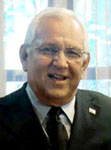
Roberto Micheletti Baín is a Honduran politician who served as the interim de facto president of Honduras from 28 June 2009 to 27 January 2010 as a result of the 2009 Honduran coup d'état. The Honduran military ousted the President, and the National Congress read a letter of resignation, which was refuted two minutes later by Zelaya in conversation with CNN en Español; days later, the coup-plotters claimed that the Supreme Court had ordered to forcefully detain President Manuel Zelaya because "he was violating the Honduran constitution"; Zelaya was exiled rather than arrested. Micheletti, constitutionally next in line for the presidency, was sworn in as president by the National Congress a few hours after Zelaya was sent into exile by the Honduran military. He was not acknowledged as de jure president by any government or international organization. The 2009 general election took place as planned in November and elected Porfirio Lobo Sosa to succeed Micheletti.

General elections were held in Honduras on 29 November 2009, including presidential, parliamentary and local elections. Voters went to the polls to elect:
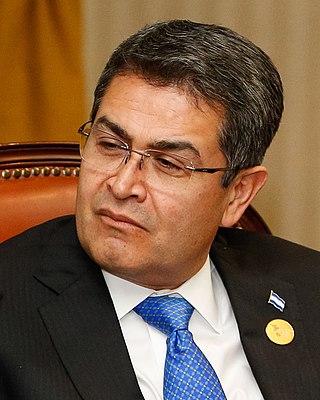
Juan Orlando Hernández Alvarado, also known as JOH, is a Honduran lawyer and politician who served as President of Honduras from 2014 to 2022 for two consecutive terms. He is the brother of convicted drug trafficker Tony Hernández.

The Plurinational Electoral Organ is the independent electoral branch of the government of Bolivia. It replaced the National Electoral Court in 2010.
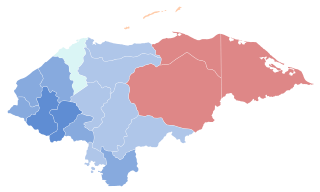
General elections were held in Honduras on 24 November 2013. Voters went to the polls to elect a new President, the 128 members of the National Congress, 298 Mayors and vice-mayors and their respective councilors and 20 representatives to the Central American Parliament.

General elections were held in Bolivia on 12 October 2014, the second to take place under the country's 2009 constitution, and the first supervised by the Plurinational Electoral Organ, a newly created fourth branch of government. Incumbent President Evo Morales was re-elected for a third term.

The Social Democratic Movement, often shortened to just the Democrats, is a centre-right political party in Bolivia founded in 2013 for the movement for greater autonomy for the eastern departments of the Media Luna.
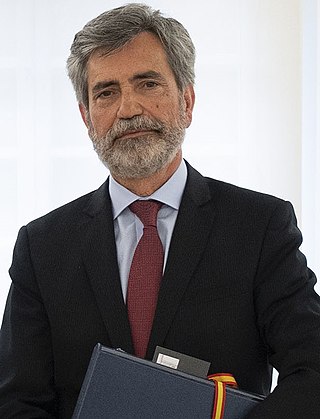
Carlos Lesmes Serrano is a Spanish magistrate and prosecutor who served as president of the Supreme Court and president of the General Council of the Judiciary (CGPJ) from 2013 to 2022. Since December 2018, he served in acting capacity in both posts, as his mandate expired at the time and the renovation of the CGPJ was blocked from then on. He is seen as a Conservative jurist with a religious background.

General elections were held in Honduras on 26 November 2017. Voters went to the polls to elect the President of Honduras to serve a four-year term, as well as 128 members of the unicameral National Congress, 20 members for the Central American Parliament and mayors for the municipalities of Honduras.
The Supreme Tribunal of Justice of Venezuela (TSJ) in exile is an institution that some, including the Organization of American States, consider to be the legitimate highest court of law in Venezuela and the head of the judicial branch, as opposed to the Supreme Tribunal of Justice. It was established on 21 July 2017 following the 2017 Venezuelan constitutional crisis. The TSJ's 33 members have been based in Chile, Colombia, Panama, and the United States due to the political crisis in Venezuela.

Legislative elections were held in El Salvador on 28 February 2021 to elect the 84 members of the Legislative Assembly, 20 members of the Central American Parliament and 262 mayors. The result was a landslide victory for Nuevas Ideas with pro-Bukele parties winning a supermajority of seats.
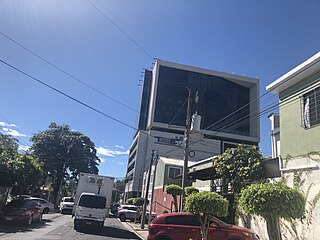
The Supreme Electoral Court is the highest electoral authority in the country of El Salvador.
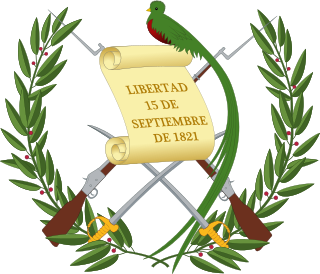
General elections were held in Guatemala on 25 June 2023 to elect the president and vice president, all 160 seats of the Congress, all 20 members of the Central American Parliament, and mayors and councils for all 340 municipalities in the country. Incumbent president Alejandro Giammattei was constitutionally prohibited from running for a second four-year term. As no presidential candidate obtained over 50% of the vote, a second round was scheduled between the top two finishers on 20 August.

Rebeca Elvira Delgado Burgoa is a Bolivian academic, lawyer, magistrate, and politician who served as president of the Chamber of Deputies from 2012 to 2013. As a member of the Movement for Socialism, she served as a party-list member of the Chamber of Deputies from Cochabamba from 2010 to 2014. Prior to her election to the lower chamber, Delgado served as a party-list member of the Constituent Assembly from Cochabamba from 2006 to 2007 and was vice minister of government coordination from 2008 to 2009. Delgado's near-decade-long political and legislative tenure was preceded by a fifteen-year career as a public servant, during which time she worked as a public defender and examining magistrate, was a magistrate on the Departmental Electoral Court of Cochabamba, and served as the Ombudsman's Office's delegate for the fight against corruption in Cochabamba.

Franz Gróver Choque Ulloa is a Bolivian industrial engineer, lawyer, and politician who served as vice minister of employment, civil service, and cooperatives from 2019 to 2020. A member of the Social Democratic Movement, he previously served as a party-list member of the Chamber of Deputies from Oruro from 2010 to 2014 on behalf of the National Convergence alliance and as a member of the Constituent Assembly from Oruro, representing circumscription 32 from 2006 to 2007 on behalf of the Social Democratic Power alliance.
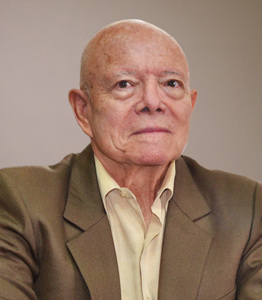
Oscar Abel Hassenteufel Salazar is a Bolivian lawyer and jurist serving as president of the Supreme Electoral Tribunal since 2021. A perennial figure in the Bolivian judiciary, Hassenteufel previously held seats on the now-defunct Supreme Court of Justice from 1993 to 2001 and National Electoral Court from 2001 to 2006, presiding over both bodies from 1999 to 2001 and 2002 to 2006, respectively.
References
- ↑ Profile at the Supreme Electoral Tribunal of Honduras website
- ↑ "David Matamoros asume presidencia del TSE", El Heraldo, 11 May 2010, archived on 14 December 2013 (in Spanish).
- ↑ "David Matamoros asume hoy como nuevo presidente del TSE", La Tribuna, 14 May 2013, archived on 14 December 2013 (in Spanish).